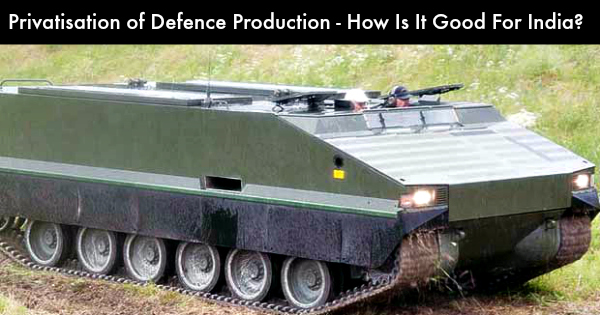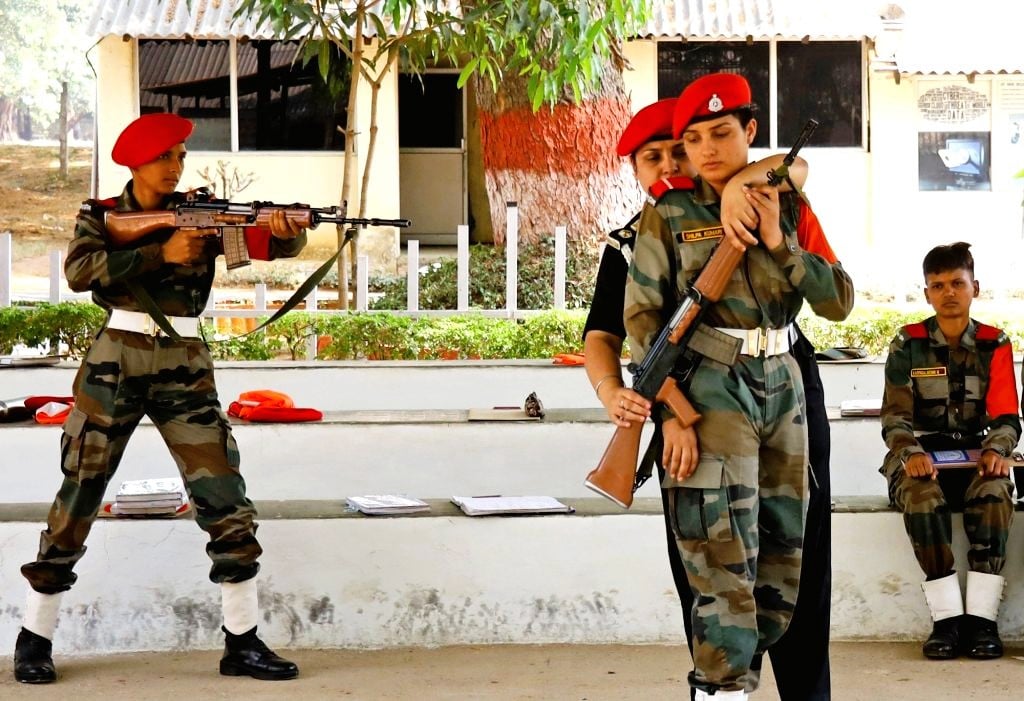The Government is promoting privatisation in Defence Production. Until February 2018, Department of Industrial Policy & Promotion (DIPP) has already issued 348 licenses to 210 Indian Companies for the manufacture of various licensable defence items. 70 license companies covering 114 licenses have reported commencement of production. Apart from this, one manufacturing license has also been issued by Ministry of Home Affairs for Small Arms and Ammunitions.
In today’s scenario where Indian government relies more on the private companies than its own undertakings raises one very important question – is privatization good for India?
The Government has partially withdrawn the public investments in respect of Defence Public Sector Undertakings (DPSUs) Bharat Electronics Limited (BEL) and BEML Ltd.
History Of Private Manufacturing:
If we look at the history of India’s manufacturing capabilities, while India got independence in 1947, our leaders never focused on the manufacturing sector. India never really had a dedicated manufacturing sector or companies that can produce good defence products for the country until now.
After the economic crisis of 1991, India opened its economy and the infant Indian companies had to face tough competition and eventually, they died. Thus India never really got a chance to become a manufacturing country and had depended on others for major engineering and defence products.
Also, while India followed the socialist policy of governance, the production, manufacturing and distribution were either done by the government or overlooked by it. With this view, India never focused on capitalism in the defence sector since its inception.
The bureaucracy can also not be ignored in the government who were authorised to carry out these tasks. Be it the Bofors scam or the Rafael deal, there has always been something that comes up, hindering the growth and development of the deals. The best example here to give is that of HAL Tejas, the concept which started in the 1980s to replace the MiG-21s only to be inducted into the 45 Sqn in 2016. That’s 36 years of loot, distortions, postponements and changes in bureaucracies.
India Moving Towards Capitalism:
India is a deeply socialist country at all levels. Socialism has destroyed India more than Jawaharlal Nehru did. This points to one of the major facts – too much power in one’s hand is never too good – be it the government or the people. But luckily, out of somewhere, India began having a mixture of socialism and capitalism into its economy to boost the manufacturing sector.
Since the formation of PM Modi’s government, schemes like ‘Make in India’, ‘DefExpo’ and relaxations in FDIs had given a boost to India’s capitalist side. The government now relies more on the private players than it does on its own organisations – be it Air India or purchase of foreign arms. But we need to consider one thing here – if we purchase jets from France, that certainly does not make us powerful than France, if we purchase guns from the US or Israel, that certainly implies that they are more superior firepower than us.
Not to forget that fact that India is the largest arms importer in the world, how many such countries will always be more powerful than us? With the privatization of the defence sector, the focus has now shifted to ‘kaam ki baat’ rather than ‘sarkari damad’.
Why Privatisation is Good for India?
Consider you own a bus service with a fleet of 10 buses and 50 employees. Your employees are working their arses off to get customers to ride in your fleet. You make a very good profit and sometimes give incentives to the best employee or give bonuses on occasions to maintain the competitive environment in your company. In case you fail to make any profits from the customers, you do not do that. And in case your company is not even having any customers, you pay your employees as per the work they did. You can fire an employee’s arse if she is not working for the growth of the company and you do not see much expectations from her. You pay your employees based on their performance. This is your private company where you pay your employees from profits and based on performances.
Now consider another scenario. Your bus service is not making any profits whatsoever. But you have another department that makes some profit from its customers. Some employees do more work to lure customers, some do less, yet there is no significant rise in the break-even in your current department, let alone profits. Now, you still pay your employees by collecting the money from other departments, still let them have their jobs, irrespective of their performance. This is your public company where you pay your employees from taxes.
Which case is better for your bus service? I’d go with the first one where my company runs on my terms.
The bus service is the present government job scenario, where, irrespective of whether you have any task or not, you are paid on the 1st of every month. The best example of this is Bhabha Atomic Research Centre (BARC) employing over 14000 employees and tasked to develop India’s nuclear ambitions. But instead, as said by a BARC employee, everyone does their own personal work. The workshop which is capable of doing wonders, now fail to even initiate a research. Their jobs are secured, if their performance degrades, they are thrown to a lower department where they continue to suck the same salary.
However, not all PSUs are this ignorant considering the outstanding work being done by ISRO and some departments of DRDO.
The only reason why privatization is good is that it always keeps you, as an employee, under the hanging sword. The performance of the employee matters, their work matters. The focus is on the outcome – good outcome.
In case of defence privatization, when companies like TATA and Reliance manufacture for the countries armed forces, it sure as hell will not take 36 years from the start to the induction of an aircraft.
Conclusion:
Capitalism in India is the need of the hour. The country needs people who work, not take away people’s taxes as salary all the while petting a pot-belly hanging out of their bodies. Privatisation in manufacturing is the first step towards the capitalist economy that has the potential to make India a developed country from a developing nation.


















